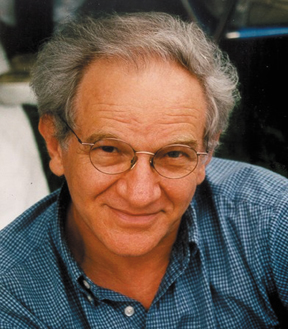Distinguished West New York author Emil Draitser recently became a third-time recipient of a prestigious fellowship grant from the New Jersey State Council on the Arts.
He was among 26 New Jersey artists selected from 460 applicants who submitted their work for review. As a result, Draitser received $7,000 to help him advance his career and produce new work.
“We grew up in a system in which suspicion and mistrust were inbred by the political system.” – Emil Draitser
________
With more than 135 short stories and 12 books published, Draitser said that his latest work, his memoir Shush! Growing up Jewish under Stalin, was the most rewarding.
“It is the most liberating genre because you can go back and forth in time,” said Draitser. He added that writing about his childhood in the Soviet Union gave him time to reflect on how it was. It was a time when people kept their voices down when they said “Jewish,” and they often changed their Jewish names, according to an excerpt.
As a young student, Draitser excelled in his literature class. With his teacher’s encouragement, he set a goal to become a journalist.
“I was naive and stupid at the time,” he said, “and I told my mother that when I finish school I would go to university to study journalism.” His mother told him that he should study engineering instead.
Draitser explained that the Soviet Union was an anti-Semitic society, and Jewish people were often held back from the humanities for fear they might obtain too much knowledge and influence.
“Humanities were considered to be a politically vulnerable area,” he said. “Jews were subjects of government-sponsored discrimination.”
However, Draitser did go on to earn a degree in engineering, and later, in journalism in the Soviet Union.
He said he was not a reporter, but rather, a columnist who wrote satirical articles. He also said he had to be careful about what he wrote.
“I could criticize a particular factory for the poor quality shoes it produced, but I could not, of course, ever criticize the whole system in which no good shoes could be made,” said Draitser. He explained that the Soviet system made it impossible to produce quality products. Not only was there no competition to spark drive and motivation to make better products, the Soviet system also mandated that everyone, even the lazy workers, be employed at all times. He added that that system simply did not work.
Draitser was eventually blacklisted in 1974 for an article he wrote criticizing an important official, which prompted him to leave for the United States.
When asked what he misses most about his home country, Draitser said: “Nothing. Absolutely nothing.” He added that his best years have been spent in the United States.
“I don’t think there is another country where I felt so protected and at home,” he said.
Coming to WNY
Draitser first settled in Los Angeles, where he earned his Ph.D. in Russian literature from the University of California. In 1986, he landed a job in New York City at Hunter College, where he has now been teaching for 23 years.
A professor of Russian, Draitser has also written extensively on Russian culture, and he said that there are a few significant differences between the Russian and American way of life.
“An American assumes you are a good guy,” he said. “You have to work hard to actually prove you are a bastard. In Russia, it is the opposite. They assume you are a bastard.”
He explained that in Russia, while he as growing up, everyone had the power to accuse anyone of fostering antigovernment sentiment. The accused would be immediately arrested.
“We grew up in a system in which suspicion and mistrust were inbred by the political system,” he said. He added that it was not necessary for the government to find the truth in whether the accused was actually guilty or not.
“Today, Russia is definitely different, not drastically,” said Draitser. “It is still a far cry from America in many ways, but at least it is an autocratic country, not totalitarian.” He added that there is now some degree of free press in Russia.
Draitser is currently working on the sequel to his memoir that will cover his adulthood and move to the United States.
